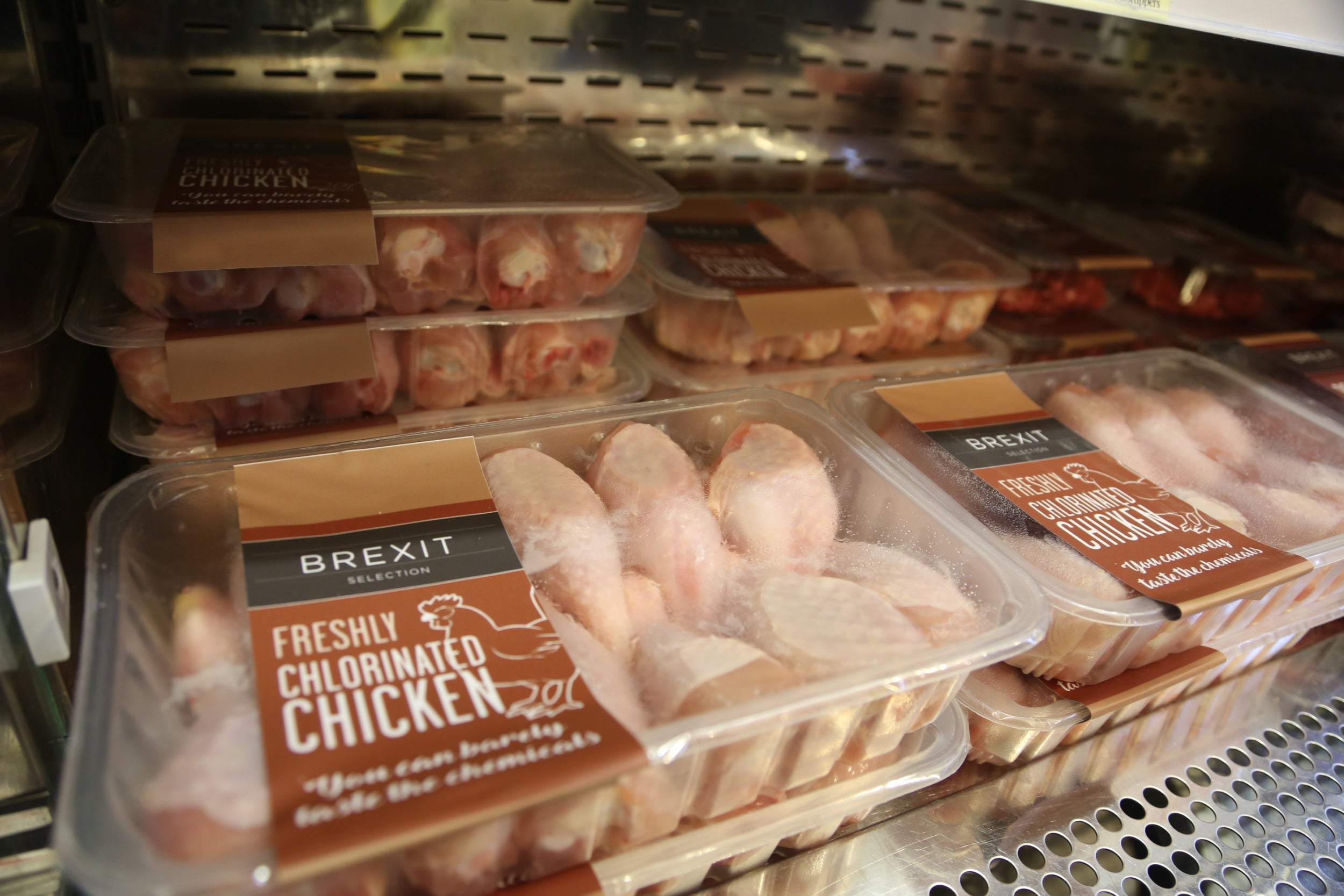Boris Johnson is dropping his promise not to import chlorinated chicken after Brexit. The welfare of animals has been sold off
It’s one of the most dangerous betrayals of an official position, writes Jane Dalton. Creating a new market for this meat will escalate industrial-scale animal cruelty


It’s a curious paradox. On the one hand, our government insists it will not lower animal welfare and food safety standards in any post-Brexit US trade deal. On the other, Downing Street has just produced new proposals allowing imports of chlorinated chicken and beef from cattle pumped with hormones – both currently banned in this country.
For more than two years, animal welfare lobbyists and British farmers have been united under one cause: sounding the alarm over the prospect of Brexit creating a whole new market for poor quality, low welfare meat. But government sources were adamant. They could not stress enough that there was no cause for concern.
As far back as March 2017, George Eustice, then an environment minister, said: “It is important that we do not put our industry at an unfair disadvantage.” Four months later, Michael Gove, as environment secretary, insisted chlorinated chicken would remain banned. “This is something on which all members of the government are agreed,” he said.
Early this year, his successor Theresa Villiers was adamant, too. “We will hold the line. It’s in our manifesto,” she said. The Department for Trade still says the same.
One wonders whether they are protesting too much. A spokesman for Boris Johnson has now signalled that such imports certainly are on the table, just with tariffs. If so, this must count as one of the most blatant, egregious broken promises by any government in living memory.
But it’s not just the deception. This is also one of the most dangerous betrayals of an official position. Creating a new market for this meat will escalate already industrial-scale animal cruelty to a grotesque level.
Cynics like to shrug off worries about chlorinated chicken; we’ve been drinking chlorinated water all our lives, they say. This totally misses the point. What is horrendous is not the chlorine itself, but the cruelty it aims to treat. US farmers use chlorine to kill the bacteria that thrive when large flocks are crammed tightly together to keep costs down and maximise profit.
Unlike Europe, America has no laws on the space, light and ventilation birds should have, and most never see the light of day. Bred to grow obscenely fast, they may collapse under their own weight.
Undercover video evidence at one large chicken producer has revealed inhumane and insanitary practices. Other investigations have found US birds raised on faeces-filled litter that had not been changed for years.
And the chlorine doesn’t always work. About 48 million people fall ill – and 3,000 die – from food-borne diseases each year in the US.
Some in the UK say that avoiding imported US meat will be easy: simply look at the label, and spend your money elsewhere. If only it were that simple.
First, there are no guarantees that US meat will be flagged as such. Indeed, American trade negotiators object to country of origin labelling. Second, much of this chicken and beef will not be on supermarket shelves but instead may be used by manufacturers in ready meals, takeaways, fast food restaurants and meals in schools, hospitals and workplace canteens – anywhere where meat eaters will be unaware of what’s in their food, and less likely to care.
Environment minister Zac Goldsmith has dismissed the U-turn as “media speculation”. But since the policy came from Downing Street, it’s not clear what more authoritative source could be possible.
Boris Johnson no doubt thinks that in years to come most consumers either won’t care or will be led only by price. This is possibly true – but it most definitely does not make it right, or ethical.
British consumers and farmers, and untold millions of animals, will pay the disastrous price for a misguided deal that was nowhere to be heard of when voters went to the Brexit ballot boxes.
Join our commenting forum
Join thought-provoking conversations, follow other Independent readers and see their replies
Comments